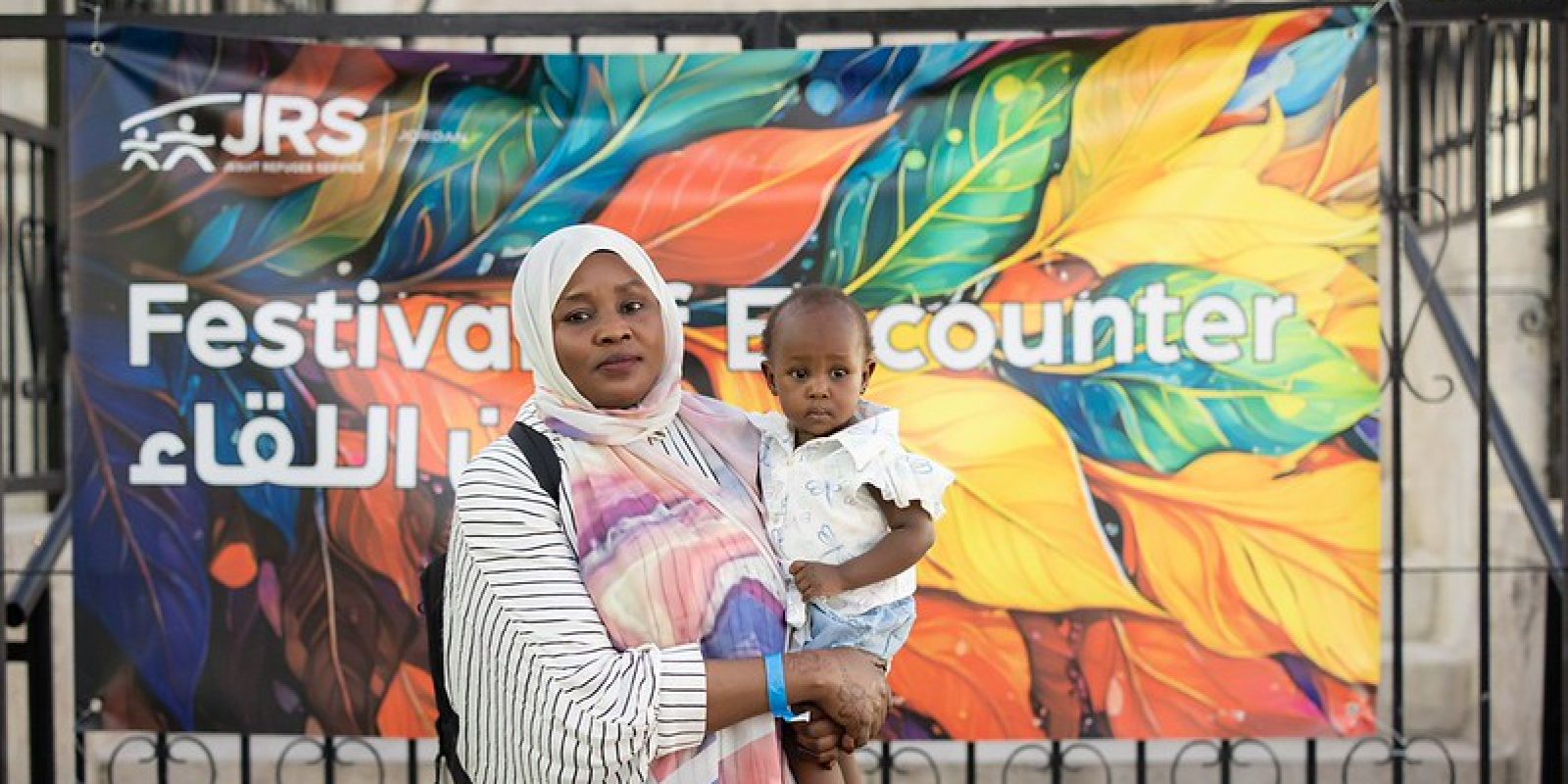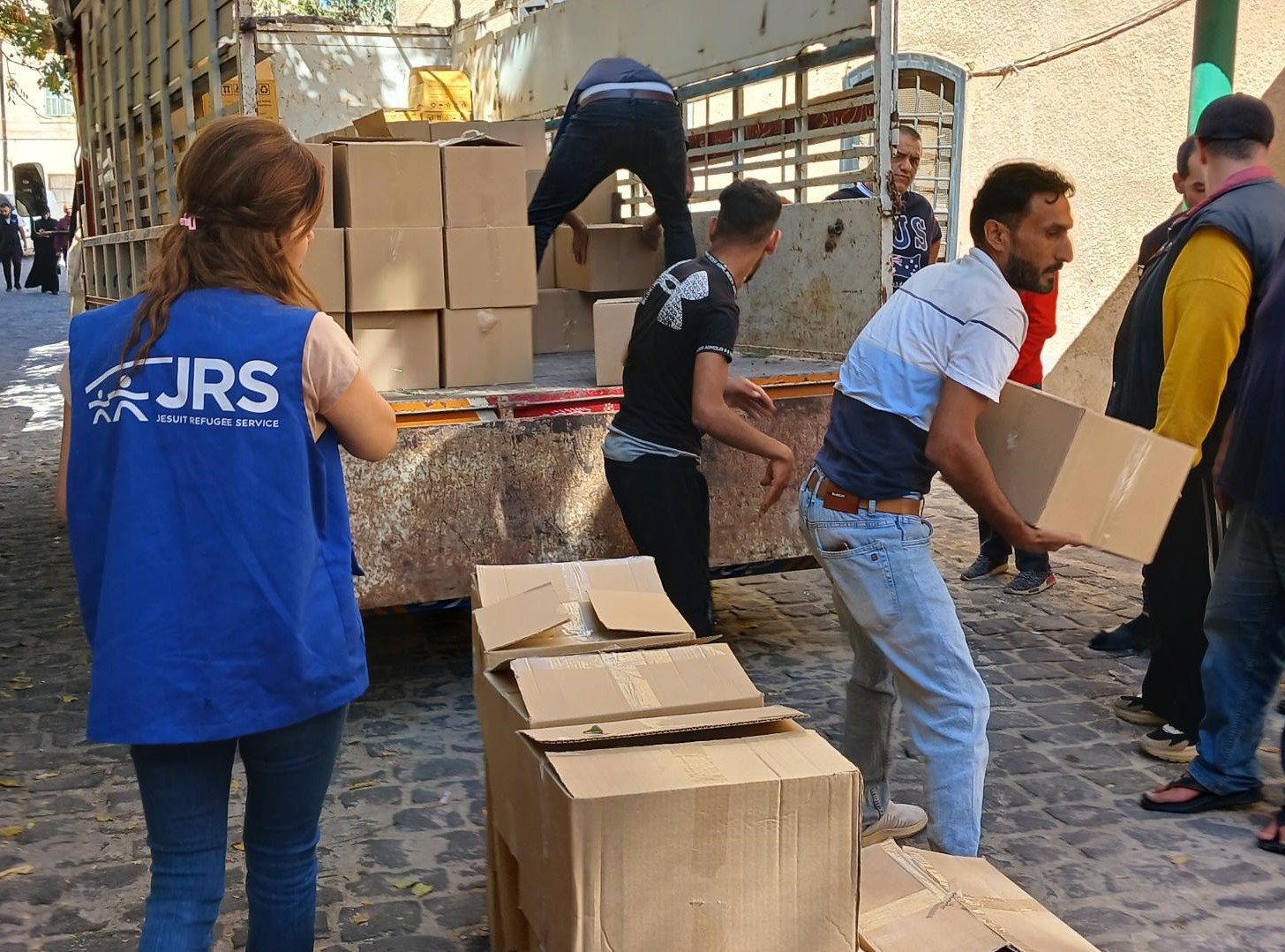Building Connections to Reconcile Differences
08 January 2021|JRS Publications
Building Connections to Reconcile Differences
Helping Refugees Rebuild Their Lives
Every day refugees all over the world live in unforgiving conditions. Torn from their lives and homes by conflicts, many encounter violence daily. They escape taking few, if any, possessions with them to face an uncertain future. Often they continue to be assaulted by violence and hostilities along their passage and where they set up house. Whether they end up in a camp or struggle to find shelter outside of camps, the living environment can be harsh and lack basic human needs and services. It’s a life most people can’t even begin to imagine.
Providing the bare necessities—food, water, healthcare—to the nearly 80 million refugees worldwide will sustain them physically. But their hearts and souls also need nourishment to help mitigate the damage caused by decades of violence, unrest, and injustice.
While nothing will erase the pain and devastation refugees have suffered, the only viable path to a meaningful future that offers hope is building bridges to work toward reconciliation and social cohesion, a term referring to the strength of relationships and the sense of solidarity among members of a community. In other words, to make what has shattered whole again.
Why Reconciliation and Social Cohesion Are Important
Mounting scientific evidence has shown that social cohesion has a direct correlation to improved physical and psychological well-being. Additional research has shown that toxic stress—such as physical or emotional abuse, exposure to violence, and the accumulated burdens of family economic hardship—can have damaging effects on learning, behavior, and health across a child’s lifespan.
That effort involves a long, slow process that begins internally with each person, eventually encompassing the community. There is no GPS guidance, and each individual journey is unique. However, programs, such as those offered by the Jesuit Refugee Service (JRS), can help facilitate the effort.
Moving Forward
What does reconciliation involve? The broad sense focuses on redefining the relationships between individuals and the state, particularly the re-establishment of trust, rights, and accountability after human rights abuses. It also includes repairing and rebuilding relationships between individuals, communities, and societies.
Transforming broken relationships is a daunting task that extends far beyond merely resolving a conflict or mending relationships. Authentic reconciliation involves a process that moves toward true peace and harmony that cannot happen without justice and equity for all. It requires a continuous effort to build social cohesion.
The JRS teams have developed principles to guide their vision of reconciliation, which it articulates as “creating right relationships” among JRS team members, the refugees they serve, and between refugees and host communities:
- Accompany refugees on their journeys towards reconciliation, and draw on their faith as a source of meaning, resilience, motivation, and values.
- Prioritize the value of shared humanity by working towards deeper understanding and appreciation of both what we have in common and what makes us different.
- Invite participation of JRS teams and refugee and host communities, particularly of those whose voices are not usually heard, and enable such participation by helping to build confidence and capacity and by creating spaces where all can have a say.
- Work for justice that restores and transforms relationships and prevents recurrence of injustice.
The faith-based approach implemented by JRS is unique in each location it serves. In places where people of several faith groups live together, JRS facilitates an inter-religious understanding of reconciliation. In other areas, where refugees and host communities follow the same faith, JRS encourages them to connect over the shared values of their religion. In every situation, JRS believes the most essential value is respect for our shared humanity above all differences.


